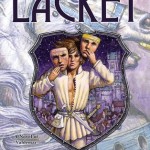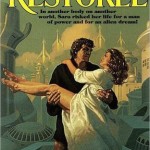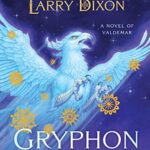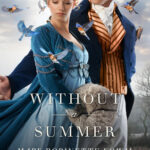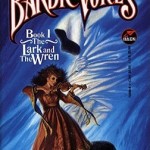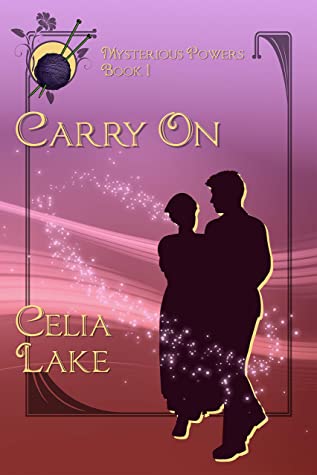 Catalyst by Anne McCaffrey, Elizabeth Ann Scarborough
Catalyst by Anne McCaffrey, Elizabeth Ann Scarborough Series: Tales of the Barque Cats #1
Published by Del Rey on January 5th 2010
Genres: Fantasy
Format: Hardcover
Source: the library
Add to Goodreads
Also by this author: Restoree, The Dragonriders of Pern
Pilot, navigator, engineer, doctor, scientist...ship's cat? All are essential to the well-staffed space vessel. Since the early days of interstellar travel, when Tuxedo Thomas, a Maine coon cat, showed what a cat could do for a ship and its crew, the so-called Barque Cats have become highly prized crew members. Thomas's carefully bred progeny, ably assisted by humans—Cat Persons—with whom they share a deep and loving bond, now travel the galaxy, responsible for keeping spacecraft free of vermin, for alerting human crews to potential environmental hazards, and for acting as morale officers.
Even among Barque Cats, Chessie is something special. Her pedigree, skills, and intelligence, as well as the close rapport she has with her human, Janina, make her the most valuable crew member aboard the Molly Daise. And the litter of kittens in her belly only adds to her value.
Then the unthinkable happens. Chessie is kidnapped—er, catnapped—from Dr. Jared Vlast's vet clinic at Hood Station by a grizzled spacer named Carl Poindexter. But Chessie's newborn kittens turn out to be even more extraordinary than their mother. For while Chessie's connection to Janina is close and intuitive, the bond that the kitten Chester forms with Carl's son, Jubal, is downright telepathic. And when Chester is sent into space to learn his trade, neither he nor Jubal will rest until they're reunited.
But the announcement of a widespread epidemic affecting livestock on numerous planets throws their future into doubt. Suddenly the galactic government announces a plan to impound and possibly destroy all exposed animals. Not even the Barque Cats will be spared.
With the clock racing against them, Janina, Jubal, Dr. Vlast, and a handful of very special kittens will join forces with the mysterious Pshaw-Ra—an alien-looking cat with a hidden agenda—to save the Barque Cats, other animals, and quite possibly the universe as they know it from total destruction.
Review
I was deeply disappointed in Anne McCaffrey and Elizabeth Ann Scarborough’s Catalyst. I wanted to like it. I enjoyed the barque cats in The Rowan and Damia, and looked forward to reading more about them. But Catalyst failed to engage my interest even enough to finish it. And that makes me sad.
McCaffrey at her best is terrific (Dragonsong, Dragonsinger, the first Dragonriders trilogy, especially The White Dragon.) I love the Dragonriders series, the early Tower and Hive books, The Ship Who Sang (and Mercedes Lackey’s thoroughly enjoyable The Ship Who Searched), Decision at Doona, and the Pegasus novels.
On the other hand, some of McCaffrey’s books simply haven’t worked for me. I could never really warm to the Killishandra books; they were good, but they weren’t my kind of book. I read the first several Acorna novels, but I neither finished the series nor went back and reread any of them. Ditto the Freedom/Catteni series and the Petaybee books. (A sure test of whether I like a book is whether I consider it worth rereading. If I don’t reread a book, it hasn’t risen to the level of “good friend,” one I enjoy spending time with.) The Freedom books, like the Killishandra books, were well-written, just “not my thing.” The first Petaybee trilogy struck me as an interesting premise which hadn’t gotten quite the level of author investment it deserved.*
Catalyst, on the other hand, felt more like the Petaybee Changelings trilogy, only worse. It isn’t simply that both the Changeling trilogy and Catalyst are clearly aimed at a middle-school/YA readership. Dragonsong and Dragonsinger are generally considered YA, and they are among McCaffrey’s best work, in part because the characters are so real. The characters in the Changeling trilogy and in Catalyst, on the other hand, feel more like cardboard cutouts. There is no real depth, and thus it was difficult to care much about them. Catalyst’s initial settings, the colony world Sherwood and the station above it, also lacked a sense of reality; they seemed two-dimensional, more like a stage set than like real places. In contrast, Pern, Doona, and the worlds of the Tower series are as real in their way as any Earth country I’ve read about but never visited.
I should be honest here and admit that there is another reason Catalyst failed to hold my attention: the cats themselves. I’m normally an expert at the willing suspension of disbelief. I can accept magic, elves, dwarves, schools for wizarding children, gryphons, telepathic dragons, and teleporting Talents. I have no problem with the intelligent cat-like species in McCaffrey’s Doona books; they aren’t cats, they are to cats what humans are to small monkeys. I can even believe wholeheartedly in Mercedes Lackey’s Companions (which look like horses, but aren’t) and bondbirds (which are more intelligent than ordinary birds because their ancestors were magically altered.) But when otherwise ordinary animals start talking and thinking like humans without any explanation of why and how, my ability to suspend disbelief is stretched past the breaking point. (Oddly, this difficulty doesn’t extend to Beatrix Potter and other picture books. I even enjoyed the animated “Redwall” series on TV—but I couldn’t get through the book. Rodents simply don’t wear swords, fight wars, or congregate in abbeys except as unwelcome visitors.)
Lackey explains the differences between her Companions and ordinary horses, between her bondbirds and ordinary raptors. Those explanations make her creations different from ordinary animals, and thus their abilities become more believable. In Catalyst, on the other hand, both pure-bred barque cats and common barn cats exhibit human-like intelligence and communication, for which McCaffrey and Scarborough fail to give any explanation at all. For anyone even moderately familiar with cats, this stretches belief too far.
I live with two cats. Tasha is inquisitive, loves to get into nooks and crannies and onto high places, and chews on power cords (not a sign of higher intelligence.) As for Thomas, we like to joke that he is waiting for the Large Hadron Collider to come back online so he can solve the mysteries of the universe, but we know he’s really just sleeping—all the time. Neither cat is particularly good at communicating anything beyond “I’m hungry,” “I want to be on the other side of this door,” and “Don’t move, you’re providing a heat source,” and they certainly don’t exhibit any sign of comprehending what we say to them. I love them both, but I have no illusions about their intelligence. If McCaffrey and Scarborough’s cats are not substantially different from my own, but talk and think like humans, how can I believe in them?
Sadly, flat characters, cardboard settings, and heavily anthropomorphized housecats don’t add up to a satisfying book, at least not for me. If you loved the Changeling trilogy, by all means read Catalyst; you may enjoy it. If you prefer McCaffrey’s older, richer works, save yourself some disappointment and skip her latest offering.
Edited 4/22/2019 to add: I have since revised my assessment of the Changling books slightly upward. Emphasis on slightly. They are still nowhere near as good as McCaffrey’s earlier works. They are, however, readable. My opinion of Catalyst remains the same, and I’ve never tried reading it again.

